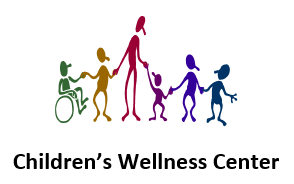Every baby starts teething at a slightly different time. Some babies are born with their first teeth, some begin teething as early as four months, and others don’t start until after their first birthday. Most babies, however, begin teething at around six months.
Sometimes, baby teeth can arrive without any noticeable pain or symptoms. Often, however, parents notice signs and symptoms of teething such as:
- Low-grade fever (under 100.4 F)
- Gum tissues appear red, swollen, and tender above the erupting tooth
- One flushed cheek
- More drooling than usual
- Increased drooling can cause a facial rash
- Increasing chewing on objects
- Frequently touching their mouth
- Rubbing their cheek or tugging on their ear
- Increased crying and fussiness
- Poor sleep or general changes in sleeping patterns
- Changes in their feeding schedule
Although teething isn’t constant and only occurs as each new tooth emerges, there are strategies that parents can try to help soothe their babies. In addition to taking steps to comfort your child, as new teeth erupt, you should also begin your baby’s dental care routine.
Soothing Strategies for a Teething Baby
If teething causes your baby discomfort, you can try the following strategies to provide some relief and comfort:
- Rub the Baby’s Gums – Gentle pressure on the gum tissues can provide relief from pain. Use a clean finger or wet gauze and gently massage the gums.
- Teething Toys – Teething toys come in lots of varieties. Some are solid while others are made of chewier rubber. Others are made for chilling in the fridge. These toys put pressure on the gums and provide your baby with something safe to ease their discomfort.
- Cold Teethers– A cold spoon, pacifier, or clean washcloth soaked in cold water can help to reduce swelling and pain from teething. Be sure not to freeze teething toys but only to chill them in the refrigerator.
- Cold Food – If your baby is eating solid food, you can offer them cold yogurt or applesauce or a pouch of cold watermelon to suck.
We don’t recommend using liquid-filled teething toys because these can leak and be harmful to children. Additionally, teething toys that are meant to be frozen can be too cold or hard. As a result, they can hurt your baby’s mouth. Of course, for safety, never leave your baby unattended with a teething object.
Exercise Caution With Over-the-Counter Remedies
Over-the-counter pain medications like infant’s acetaminophen (Tylenol) or infant’s ibuprofen (Motrin or Advil) are safe and effective with a doctor’s approval and by following dosing instructions.
However, other over-the-counter teething products such as homeopathic remedies like tablets and topical gels are not properly tested and screened for safety and efficacy. For example, some recent analyses of these products have found dangerous levels of ingredients like belladonna, benzocaine, or lidocaine.
Additionally, teething products like necklaces, anklets, or bracelets present a risk of injury and can be a choking hazard.
For these reasons, we recommend using extreme caution with over-the-counter teething remedies and always talking with your pediatrician before trying a different product.
Dental Care for Your Baby’s First Tooth
Your Baby’s First Dental Appointment
The American Academy of Pediatric Dentistry recommends that parents schedule a baby’s first dental visit either when their first tooth erupts or when they celebrate their first birthday (whichever occurs first). Your dentist will examine the tooth, monitor your baby’s oral development, give you some invaluable advice for taking care of your baby’s teeth, and begin their preventative dental care routine.
At-Home Oral Hygiene for Babies
Once your baby has their first tooth, you should begin a morning and evening brushing routine (and then introduce flossing once consecutive teeth have erupted). Use a soft-bristled, infant-sized toothbrush and fluoride toothpaste. It’s safe to use an application of toothpaste about the size of a grain of rice. Once your child is old enough, you can teach them how to spit out their toothpaste after brushing.
Once your baby has a tooth, you should not put them to bed with a bottle of milk, formula, or juice. The sugars from these drinks will remain on your baby’s teeth all night long, significantly increasing their risk of tooth decay and cavities.
When to Contact a Pediatrician for Your Teething Baby
While teething can be a stressful time for parents, it’s good to remember that our pediatricians at Children’s Wellness Center are always here to support you. We can answer your questions and provide you with recommendations for your baby’s pediatric dentist.
Teething can be uncomfortable for babies, but it should not make them sick. If your teething baby has a fever above 100.4 F or symptoms like nausea, diarrhea, congestion, or coughing, you should schedule a doctor’s appointment right away. If you have any questions about teething, please contact us.

